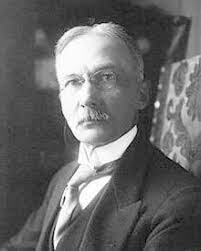Baldwin, James Mark

Bio: (1861-1934) American psychologist, philosopher, and sociologist. During his studies in Germany in 1884 and 1885, James Mark Baldwin came into contact with the experimental psychology of Wilhelm Wundt. He became a professor at the University of Toronto in 1889, where he founded a laboratory for psychology. He taught philosophy and psychology at Princeton University and also founded a psychology laboratory there. He founded the journal Psychological Review in 1894. He wrote the Handbook of Psychology (1889-1901) and edited the Dictionary of Philosophy and Psychology (1901-1905). At the end of his career, he taught in France. He applied evolutionary principles in the study of psychology. He made a great contribution to the foundation of developmental psychology, and his theories influenced the developmental psychology of Jean Piaget. He viewed the development of the self as a process between the self and the outside world. Baldwin saw the processes of "ejection", "adaptation" and "imitation" as key to building the self. He viewed the race as a social category, not as a consequence of biological differences.
Theoretical approaches
EvolutionismMain works
Handbook of Psychology, 2 vol. (1889-1901);
Elements of Psychology (1893);
Mental Development in the Child and the Race (1895);
Social and Ethical Interpretations in Mental Development (1897);
Story of the Mind (1898);
Dictionary of Philosophy and Psychology, 3 vol (1901-1905);
Development and Evolution (1902);
Thought and Things (1906).

